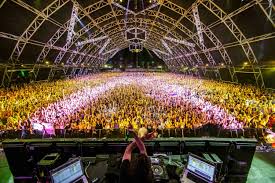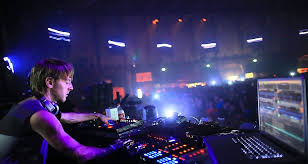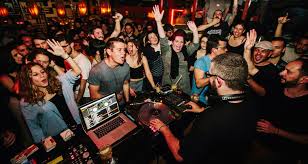What is a DJ?
DJ is the short form for disc jockey. A DJ is someone who plays the music you hear on radio stations, internet radio stations, local bars and dance clubs, and even at wedding receptions. A disc jockey will consider their target audience when selecting the tracks to be played and often has a set list given to them by the company they work for.
Successful DJs commonly have some specific personality traits and accept the lifestyle that comes with the career.
Personality • A love of music: Without the love you’re nothing more than a jukebox. – Josh Chambers, Professional DJ • Comfortable with networking and meeting people: necessary to build a fan base and establish professional contacts • Fun-loving and outgoing: excitement translates to the audience and makes them respond in a similar way • Versatile: versatility in both music genres and use of music technologies is key • Adaptable: no two gigs or audiences are exactly alike • Hunger for knowledge and improvement: music technologies and trends are constantly evolving
Lifestyle • Weekend and late night work is typical; work/family life balance can be challenging. • Beginner DJs usually hold down day jobs and start off by playing on slower nights. • Many new DJs offer to play sets for free so that venue managers get to know them, their work ethic, and how audiences react to them.
To further help you decide whether a career as a DJ may be for you, here are some insights and advice from working DJs:
• Practise, practise, practise. • Learn how to mix on more than one device. Technology can backfire on you easily. Always show up with your laptop, CDs, and a USB stick to make sure you can play no matter what happens. • If you’re not writing music that is getting released, you will never make it to the next level. • Learn to play an instrument or at least take a course in music theory • The best part of the job is seeing people enjoy music as much as you do. • The worst parts of the job are managing the odd technical disaster and dealing with drunk or high audience members and with some shady promoters. • The biggest misconception about the job is that the work stops when you leave the building. The best DJs are always listening for new remixes and are always ready to build a relationship with a vendor, venue owner, or other DJs.
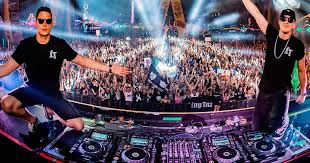
What does a Disc Jockey really do?
DJs are the performers. They are the ones that travel, go club to club, they in effect promote the music that is produced in studios around the world. They create sets based on the music they like, the selection of those tracks and how they are played, creates a sound that appeals to a certain groups of listeners.
DJs play an important role in showcasing new music and many themselves produce music as well. Some DJ sets are a standard beat mix, where tempos are matched and the songs are blended together, but many totally reinterpret and remix tracks making an old favourites new again by rearranging and resampling songs with other samples.
Certain clubs around the world are known for the genre of music they host, some clubs will showcase multiple genres over different nights, these club nights attract the DJs who play in the particular genre eg Progressive House, Dub Step, Techno etc. Cities themselves have a sound that they are known for that has been shaped by DJs eg Detroit and Berlin.
DJs can make or break a party, and for those that do put on a show, people come back. Its an experience and a story people can share. No different from any other musical act. They are putting on a show, they are entertainers.
To perform DJs use different types of technical setups. Some use software such as Native Instrument’s Traktor or Ableton Live, some CD-Js or turntables. The DJ setup has been evolving rapidly over the years as technology becomes more affordable.
The scratch action you refer to has been traditionally done on a turntable but can be emulated in software. It’s was made famous in hip-hop where the scratching becomes the prominent part of the set. Some DJs specialise in this artform and are known as turntablists.
So what does a Disk Jockey do? Well that depends on what music they play, where they are playing, what technical setup they have and how good they are at connecting with fans through the set they put together
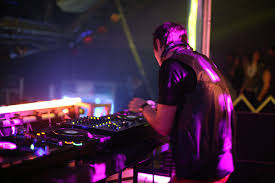
How DJs are different from music composers?
A DJ traditionally plays pre recorded music in clubs. There are a lot of skills associated with DJing in a club. Beat Matching, track choice etc etc.
If we’re talking in terms of the dance music world still, a music composer is the one who creates the music. They either write it for someone else to produce or (more frequently these days) they record it themselves.
Some DJs actually compose their own music too. But the act of DJing itself, is not the same as composing.
Note. Re Editing someone elses music is not the same as composing.
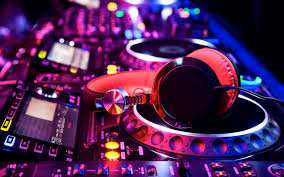
Disc Jockey Career Video Transcript
Part researcher and part public personality, announcers and disc jockeys—or DJs— use writing skills and a pleasant speaking voice to share news and information with the public. Broadcast announcers and radio DJs present music or the news and comment on important current events. Announcers who host talk shows usually research and discuss issues with guests and audience members in a subject such as politics, personal finance, sports, or health.
Announcers and DJs schedule guests for their shows, maintain a social media presence to encourage a following, and develop other creative content such as contests and events. They also give updates on weather and traffic conditions. Some work as sports team announcers, party DJs, and event MCs, providing background information and entertaining the audience or detailing the event as it unfolds for the listening audience.
Broadcast announcers and radio disc jockeys usually work full-time schedules in soundproof studios. Shows are usually recorded during the day for later broadcast or podcasts, but some announcers broadcast live, and may work late night hours, weekends or holidays. Deadlines and tight work schedules are common in these fields. Broadcast announcers and radio DJs typically need a bachelor’s degree in journalism, broadcasting, or communications to enter the field, but some jobs may not emphasize educational requirements. They typically need previous experience gained from internships or from working at a college radio or television station.
Disc Jockey Responsibilities:
- Reviewing the weekly and daily playlist.
- Ensuring music and commercials are played on schedule.
- Introducing weather, traffic, and news presenters.
- Taking music requests and engaging with listeners.
- Responding to social media interactions.
- Presenting on-air competitions.
- Interviewing guests.
- Presenting sponsored live events.
- Mixing and playing music at sponsored events.
- Presenting live on-air advertisements.
